Mosquitoes are more than just annoying—they can disrupt peaceful evenings outdoors and spread diseases such as dengue, malaria, and West Nile virus. While bug sprays and chemical repellents are common solutions, they often contain harsh ingredients that aren’t eco-friendly or safe for long-term use. Fortunately, nature provides us with an effective alternative: plants that repel mosquitoes naturally.
These plants release strong fragrances, essential oils, or natural compounds that mosquitoes find unappealing, making them a safe and sustainable option for your garden, patio, or balcony. In this guide, we’ll explore five powerful mosquito-repelling plants you can grow, along with tips on how to use them for maximum effectiveness.
Why Use Plants to Repel Mosquitoes?

Before diving into the list, let’s understand why plants are a smart choice:
- Eco-Friendly: They reduce the need for chemical repellents.
- Dual Purpose: Many mosquito-repelling plants are also ornamental, edible, or medicinal.
- Continuous Protection: Once established, they provide long-term mosquito deterrence.
- Cost-Effective: Growing a few pots of these plants can save money on sprays and repellents.
Now, let’s take a closer look at the top five plants that can keep mosquitoes at bay.
1. Citronella (Cymbopogon nardus & Cymbopogon winterianus)
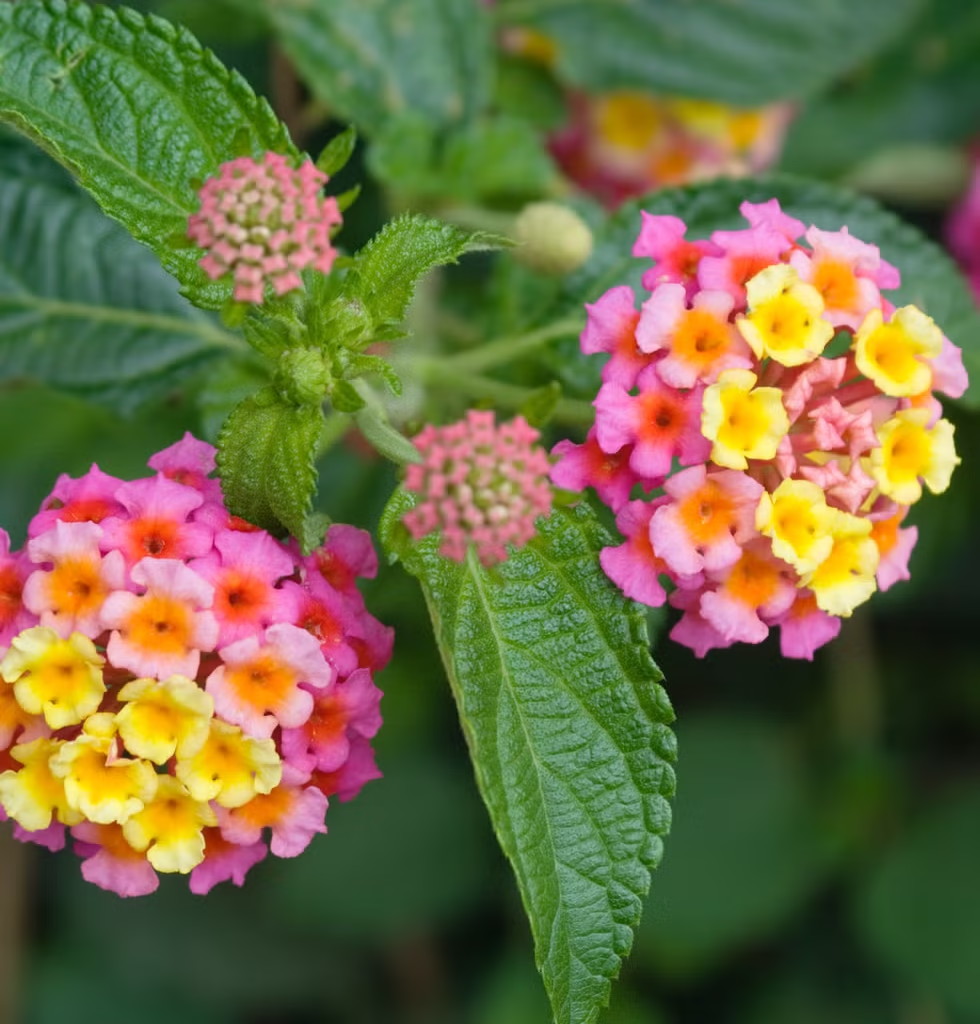
When people think of mosquito-repelling plants, citronella is the first that comes to mind. It’s the source of citronella oil, widely used in candles, sprays, and lotions.
Why It Works:
- Citronella grass contains citronellal, citronellol, and geraniol, natural compounds that mask scents that attract mosquitoes.
- The fragrance confuses mosquitoes, making it difficult for them to locate humans.
How to Grow:
- Climate: Thrives in warm, tropical, and subtropical regions.
- Light: Full sun.
- Soil: Well-draining, moderately fertile soil.
- Care: Water regularly but avoid waterlogging. Trim to encourage bushy growth.
Best Use:
- Plant citronella in large pots around outdoor seating areas or along walkways.
- Crush a few leaves and rub them lightly on your skin for a natural repellent boost.
2. Lavender (Lavandula angustifolia)
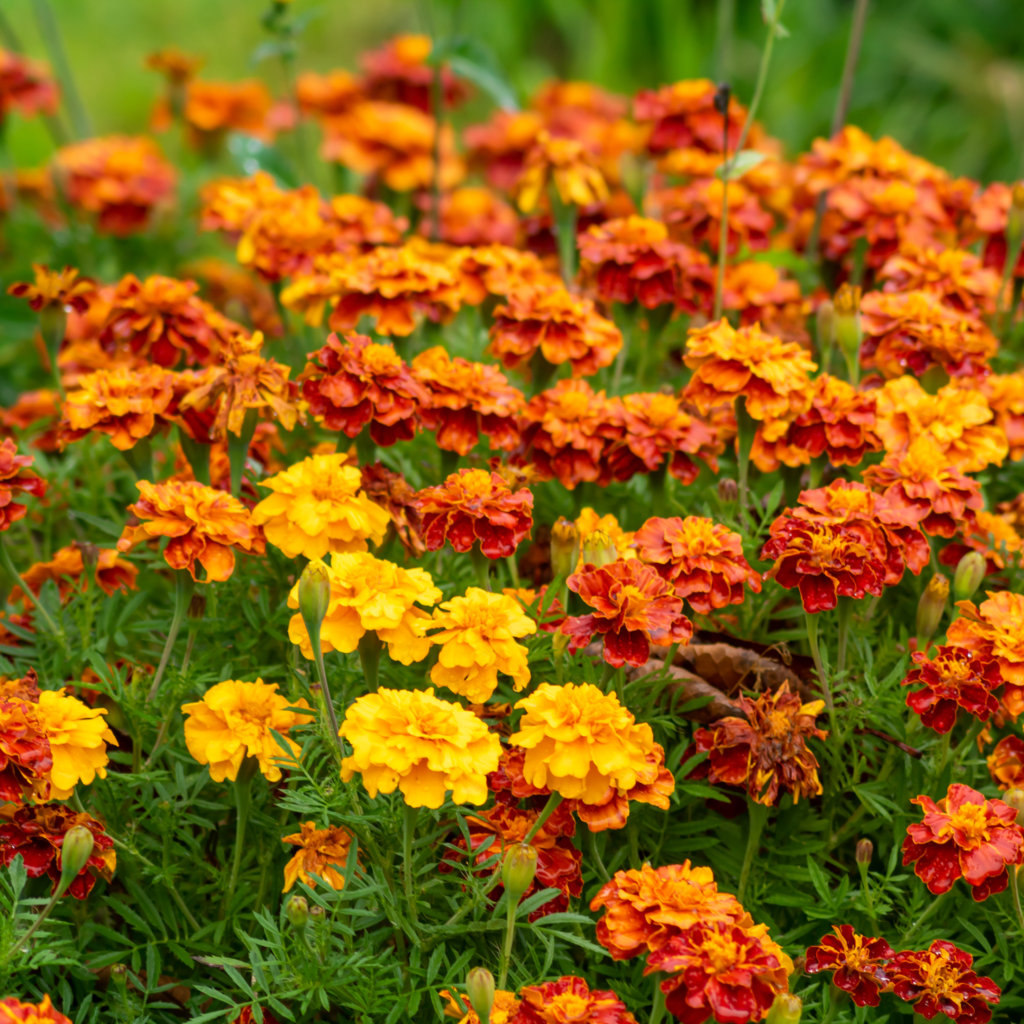
Beyond its calming aroma, lavender is a powerhouse for keeping mosquitoes away. Its scent comes from oils like linalool and camphor, which mosquitoes dislike.
Why It Works:
- Lavender’s strong fragrance masks human scents, making it harder for mosquitoes to target you.
- It also deters other pests like moths and flies.
How to Grow:
- Climate: Prefers dry, sunny climates.
- Light: At least 6 hours of full sun daily.
- Soil: Sandy, well-drained soil with a neutral to slightly alkaline pH.
- Care: Water sparingly; lavender thrives in slightly dry conditions.
Best Use:
- Place pots of lavender near windows, patios, or garden entrances.
- Dry lavender flowers and keep sachets indoors to repel mosquitoes year-round.
- Extract lavender oil and mix with a carrier oil for a DIY mosquito-repelling rub.
3. Basil (Ocimum basilicum)
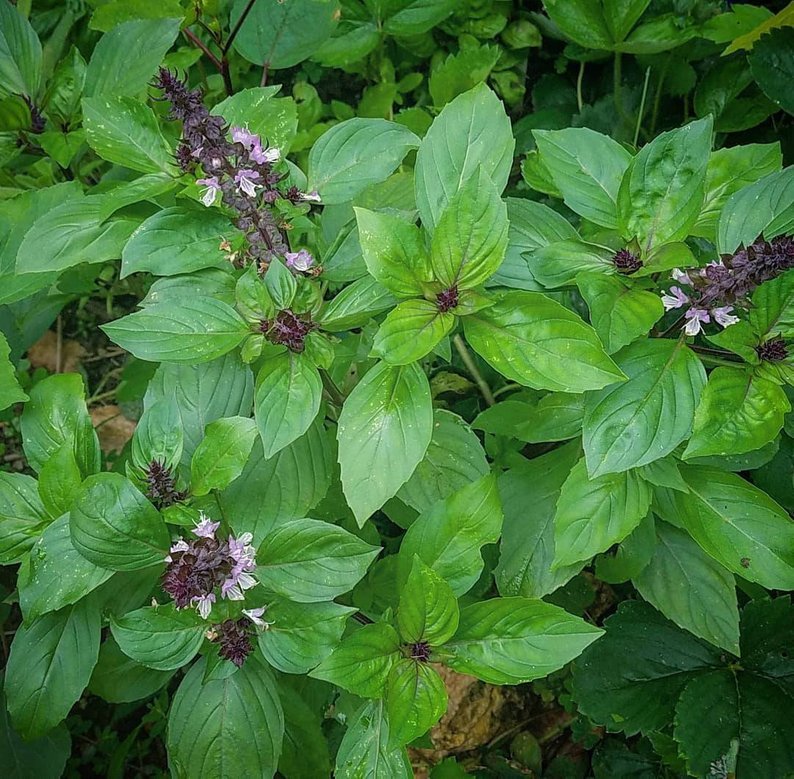
A staple in kitchens worldwide, basil does double duty as both a culinary herb and a mosquito deterrent. Its strong aroma is due to estragole, citronellol, and linalool, compounds that repel insects.
Why It Works:
- Basil emits a pungent fragrance that mosquitoes find overwhelming.
- Studies suggest that basil essential oil can kill mosquito larvae, preventing infestations before they start.
How to Grow:
- Climate: Warm-season plant; sensitive to frost.
- Light: Full sun (6–8 hours daily).
- Soil: Moist, well-draining, rich in organic matter.
- Care: Pinch off flower heads to encourage leaf growth; water regularly.
Best Use:
- Grow basil in pots and place them on balconies or near outdoor dining areas.
- Crush fresh basil leaves and rub them on your skin for quick protection.
- Use basil essential oil in diffusers to repel mosquitoes indoors.
4. Marigolds (Tagetes spp.)
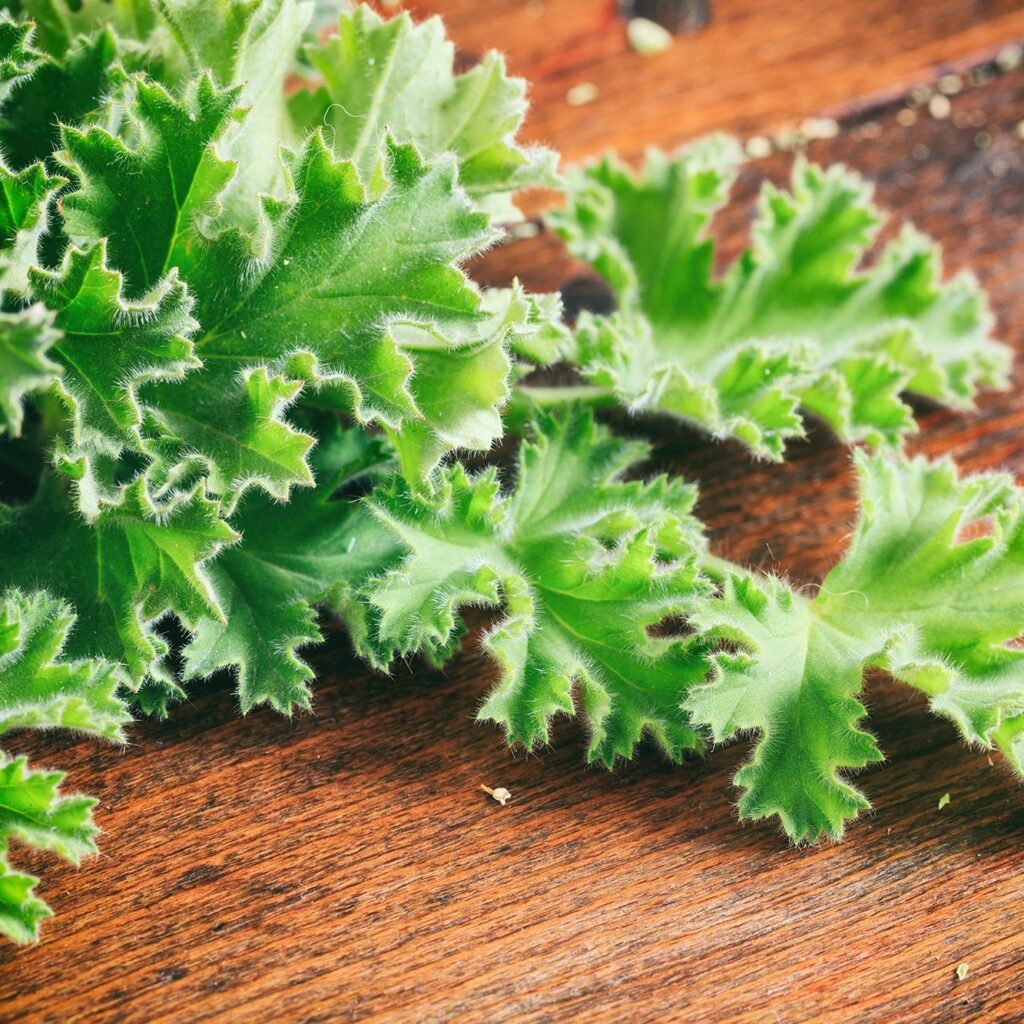
Cheerful and vibrant, marigolds are a gardener’s favorite for their bright flowers and pest-repelling powers. These annuals contain pyrethrum, a compound used in many commercial insect repellents.
Why It Works:
- The strong scent of marigolds masks other smells that attract mosquitoes.
- Pyrethrum naturally repels mosquitoes, whiteflies, and nematodes.
How to Grow:
- Climate: Grows well in warm climates.
- Light: Full sun.
- Soil: Moderately fertile, well-draining soil.
- Care: Low-maintenance; water regularly but don’t overwater. Deadhead flowers to encourage more blooms.
Best Use:
- Plant marigolds along garden borders, in pots near entrances, or around vegetable patches.
- Place them near patios or outdoor sitting areas to create a colorful yet functional mosquito barrier.
5. Lemon Balm (Melissa officinalis)
Also called balm mint, lemon balm is a member of the mint family known for its lemony scent, thanks to its high citronellal content.
Why It Works:
- Citronellal confuses mosquitoes and drives them away.
- Its fragrance is pleasant for humans but overwhelming to pests.
How to Grow:
- Climate: Hardy perennial in most regions.
- Light: Prefers partial shade but tolerates full sun.
- Soil: Moist, well-drained soil rich in organic matter.
- Care: Lemon balm spreads quickly; trim regularly to prevent overgrowth.
Best Use:
- Grow in pots to contain its spread and place near doorways or outdoor seating.
- Crush fresh leaves and rub directly on your skin for natural protection.
- Use dried leaves in sachets or herbal blends for indoor repelling.
Tips for Maximizing Effectiveness
While these plants naturally repel mosquitoes, you can enhance their effectiveness with a few strategies:
- Crush the Leaves: Releasing oils from leaves intensifies their mosquito-repelling power.
- Strategic Placement: Place pots near windows, doors, patios, or other gathering areas.
- Companion Planting: Combine several mosquito-repelling plants for stronger protection.
- Essential Oils: Distill or purchase oils from these plants for concentrated, portable mosquito repellents.
- Maintenance: Keep plants healthy and well-trimmed to ensure they produce strong scents.
Other Helpful Plants Worth Mentioning
While the above five are the most popular, other plants also help keep mosquitoes at bay:
- Rosemary: Repels mosquitoes and adds flavor to meals.
- Catnip: Contains nepetalactone, proven to be more effective than DEET in some studies.
- Peppermint: Strong scent repels mosquitoes while cooling the air.
Final Thoughts
Mosquitoes may be a fact of life, but they don’t have to take over your outdoor spaces. By planting natural repellents like citronella, lavender, basil, marigolds, and lemon balm, you can enjoy a mosquito-free environment without relying on harsh chemicals.
These plants are not only functional but also beautiful and versatile, offering culinary, medicinal, and ornamental benefits. Whether you grow them in pots on your balcony, scatter them throughout your garden, or use them indoors, you’ll be creating a healthier, eco-friendly shield against mosquitoes.
So, the next time you’re swatting away those pesky insects, remember—your garden itself could hold the key to keeping them away, naturally.
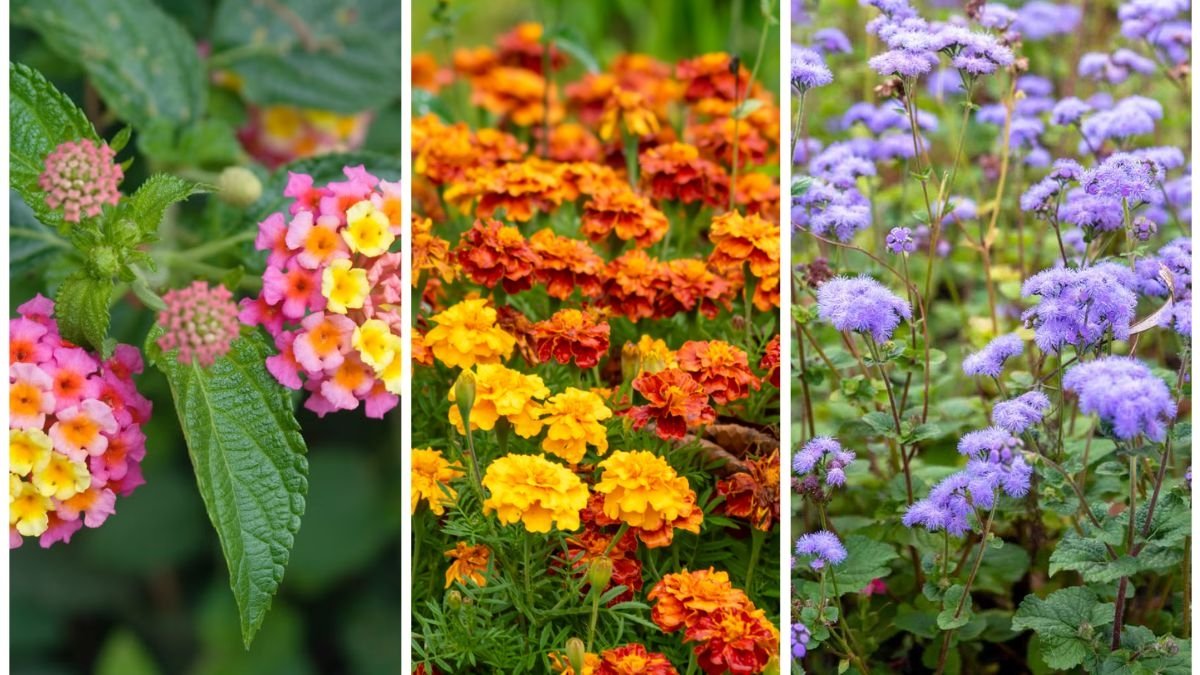
Leave A Comment